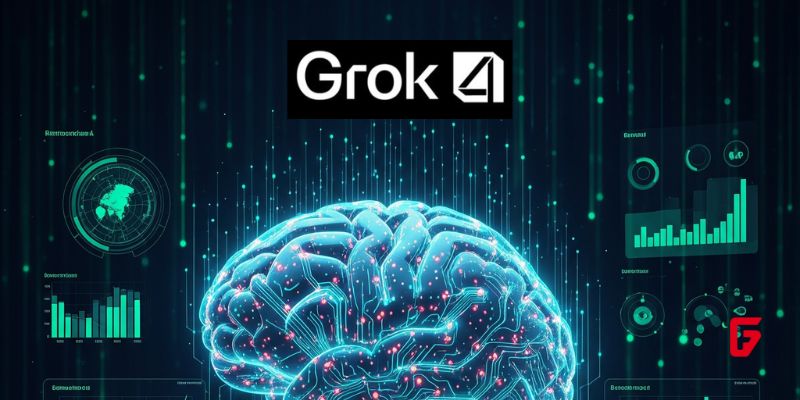By futureTEKnow | Editorial Team
In the relentless pursuit of improving healthcare and finding new treatments for diseases, the pharmaceutical industry has embraced a powerful ally: Artificial Intelligence (AI). This technology is transforming the way drug discovery is conducted, making the process faster, more efficient, and increasingly accurate.
AI is being used in drug discovery by harnessing the power of machine learning algorithms to analyze vast datasets of biological and chemical information, making the drug development process more efficient and cost-effective.
One unique way AI does this is through the identification of potential drug candidates from unconventional sources. For example, AI can analyze data from traditional medicine systems, such as Ayurveda or Traditional Chinese Medicine, to discover novel compounds with therapeutic potential that might have been overlooked by traditional drug discovery methods.
Artificial intelligence, including machine learning and deep learning algorithms, is being applied to various stages of drug discovery:
AI-powered machine learning algorithms analyze complex genomic and proteomic datasets to pinpoint precise drug targets, revolutionizing how researchers discover potential therapeutic interventions for challenging diseases.
Cutting-edge AI systems can rapidly screen millions of chemical compounds, predicting their potential therapeutic efficacy, safety profiles, and molecular interactions with unprecedented speed and accuracy.
Sophisticated machine learning models forecast intricate drug-target interactions, enabling researchers to understand potential molecular mechanisms and anticipate side effects before expensive laboratory testing begins.
AI-driven algorithms generate strategic molecular modifications, enhancing lead compounds’ effectiveness, improving bioavailability, and reducing potential toxicity risks with data-driven precision.
Artificial intelligence analyzes extensive medical databases to identify promising alternative uses for existing drugs, dramatically accelerating drug development timelines and reducing research and development costs.
The integration of AI in drug discovery offers numerous advantages:
AI significantly accelerates the drug discovery process, potentially reducing development timelines by up to 80%. This rapid acceleration enables pharmaceutical companies to bring novel treatments to market faster, addressing urgent medical needs more efficiently.
By optimizing various stages of drug discovery, AI can lead to cost savings of up to 70% per clinical trial. This dramatic reduction in expenses allows for more resources to be allocated to promising drug candidates, increasing the overall efficiency of pharmaceutical research.
AI algorithms analyze individual patient data, including genetic profiles and medical histories, to tailor treatment plans and custom-made drugs. This personalized approach minimizes adverse reactions and maximizes treatment efficacy, potentially transforming patient care in the pharmaceutical industry.
AI-based approaches can accurately predict interactions between novel drug pairs by analyzing large datasets of known drug interactions. This capability is crucial for developing safer combination therapies and minimizing risks in multi-drug treatments, especially in the context of personalized medicine.
AI enables high-fidelity molecular simulations that can be run entirely on computers, reducing the need for costly physical testing. These systems can also predict key properties such as toxicity, bioactivity, and physicochemical characteristics of molecules, streamlining the early stages of drug development.
AI can make drug discovery faster, more efficient, and less costly. However, there are several challenges to using AI in drug discovery, including:
AI algorithms require vast amounts of high-quality, standardized data to make accurate predictions. However, obtaining comprehensive and reliable data from clinical trials, genomics, and other sources in drug development is often challenging. The limited availability of suitable data and issues with data consistency can significantly affect the accuracy and reliability of AI-driven results.
The use of AI in drug discovery raises important ethical questions, particularly regarding fairness and bias. If training datasets are biased or unrepresentative, AI algorithms may produce inaccurate or unfair predictions, potentially leading to skewed drug development processes that could disproportionately affect certain demographics.
The rapid advancement of AI technologies has outpaced the development of clear regulatory guidelines for validating and approving AI-driven drug development processes. This regulatory gray area creates uncertainty and can slow the adoption of AI in pharmaceutical research.
Many AI models function as “black boxes,” making it difficult to explain their decision-making processes. In drug development, understanding the reasoning behind AI-generated predictions is crucial for gaining regulatory approval and building trust among stakeholders.
Implementing AI technologies in drug discovery requires significant financial investment and specialized expertise. The high costs associated with AI implementation and the need to build in-house capabilities can be prohibitive, especially for smaller pharmaceutical companies and research institutions.
Artificial Intelligence is a game-changer in the pharmaceutical industry, with a remarkable potential to reshape drug discovery and development. As AI-powered tools become more sophisticated, we can anticipate even more remarkable discoveries and groundbreaking treatments on the horizon.
futureTEKnow is a leading source for Technology, Startups, and Business News, spotlighting the most innovative companies and breakthrough trends in emerging tech sectors like Artificial Intelligence (AI), immersive technologies (XR), robotics, and the space industry. Since 2018, futureTEKnow has evolved from a social media platform into a comprehensive global database and news hub, delivering insightful content that connects entrepreneurs, investors, and industry professionals with the latest advancements shaping the future of business and technology.

Paris-based Tandem raises $3.8M to advance its AI-driven team collaboration platform, aiming to streamline workflows and empower remote and hybrid teams with smarter productivity tools.

Apple’s new AI model leverages Apple Watch behavior data—like activity, sleep, and mobility—to deliver more accurate, early health predictions and insights.

Microsoft is investing $4 billion in Elevate, aiming to train 20 million people worldwide in AI skills. The program offers accessible education, credentials, and global partnerships to prepare the workforce for an AI-driven future.

Discover how the AI boom is pushing the U.S. power grid to its limits, raising energy costs and prompting urgent upgrades in infrastructure and policy.

After spinning out from Intel, RealSense secures $50 million in funding to accelerate advancements in AI vision and robotics. Learn what this means for the future of automation and intelligent systems.

Amazon Web Services will debut its Agentic AI Marketplace next week, featuring Anthropic’s advanced AI. Learn how this move could reshape enterprise AI adoption and innovation.

Google Gemini AI introduces a photo-to-video feature, enabling users to create dynamic 8-second video clips with sound from images. Available for Ultra and Pro subscribers, this tool is powered by Veo 3 and brings new creative possibilities for content creators.

Irish AI startup Oraion has raised €2.9 million in pre-seed funding to expand into the U.S. market and accelerate development of its enterprise automation platform.

Discover how rapid AI advancements may soon replace traditional jobs, disrupt global economies, and drive the need for new income models like UBI.

xAI’s Grok 4 is redefining artificial intelligence with breakthrough reasoning, top benchmark scores, and new multimodal capabilities—outperforming industry leaders.

Discover how Deepinvent’s AI Innovator compresses R&D from years to minutes, empowering innovators to create breakthrough inventions and accelerate progress across industries.

Coca-Cola’s AI-driven demand forecasting pilot achieved a 7-8% sales surge by combining historical data, weather, and geolocation for smarter inventory decisions. Learn how this tech is reshaping retail.
futureTEKnow is focused on identifying and promoting creators, disruptors and innovators, and serving as a vital resource for those interested in the latest advancements in technology.
© 2025 All Rights Reserved.
To provide the best experiences, we use technologies like cookies to store and/or access device information. Consenting to these technologies will allow us to process data such as browsing behavior or unique IDs on this site. Thanks for visiting futureTEKnow.